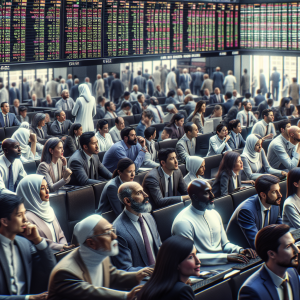As the world grapples with ongoing economic challenges, the potential impact of tariffs introduced during Donald Trump’s presidency is resurfacing as a significant concern. These tariffs, aimed at reshaping trade relationships, continue to exert pressure on global markets. This article examines the current state of the economy, the implications of these tariffs, and offers insight into investment strategies amid uncertainty.
The global economy is facing a turbulent period marked by weakened growth and persistent inflation. Recent data indicates that many countries are struggling to recover from the pandemic’s aftermath, with supply chain disruptions and soaring energy prices compounding existing issues. Economists are wary as they analyze key indicators such as gross domestic product (GDP), employment rates, and consumer spending. The International Monetary Fund (IMF) has previously warned that the economic outlook for many nations remains uncertain, with growth projections being revised downward.
Tariffs, particularly those imposed on imports from China and other trading partners, continue to shape economic dynamics. Initially designed to protect American industries, these tariffs have also led to retaliatory measures from affected countries, which in turn have strained global trade relationships. As a result, businesses worldwide are facing increased costs, which can lead to higher prices for consumers. Experts argue that the long-term effects of these tariffs could stifle economic growth, particularly as countries strive to stabilize their economies in the wake of external pressures.
Investors must navigate this complex landscape with caution. Market volatility has become a hallmark of the current financial environment, and the unpredictability of tariff impacts adds another layer of risk. Investment strategies that focus on diversification and sectors less susceptible to tariff fluctuations may offer some protection. Financial advisors recommend looking into industries that have historically weathered economic downturns, such as utilities and consumer staples. Additionally, considering assets like bonds or precious metals may provide a hedge against inflation and market instability.
In conclusion, as the world economy continues to face challenges exacerbated by tariffs, it is crucial for individuals and businesses to remain informed and adaptable. The potential for growth is still present, but it requires careful navigation of the current economic landscape. By understanding the implications of tariffs and employing smart investment strategies, stakeholders can better position themselves to weather the ongoing economic storm.





